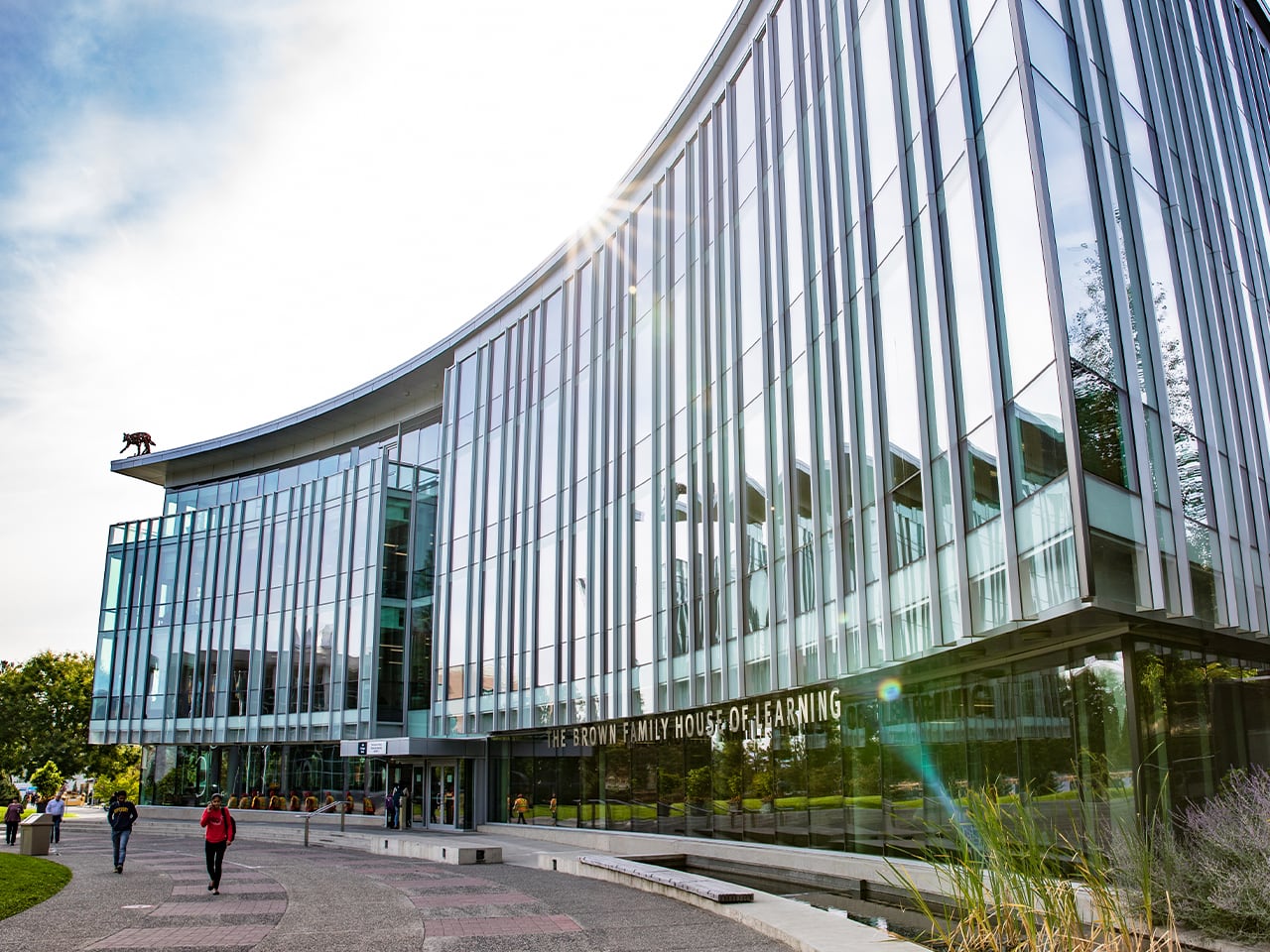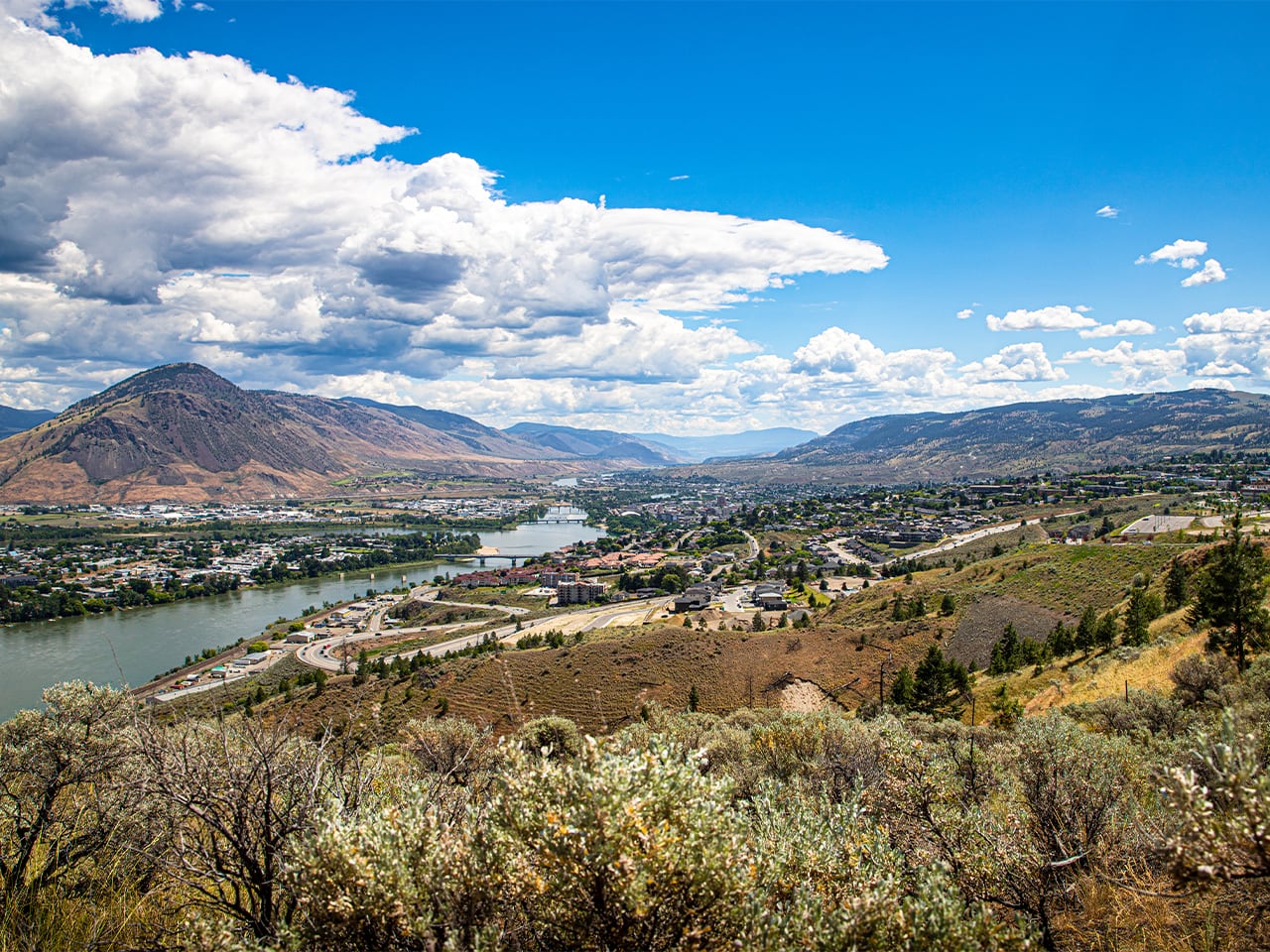Develop yourself as a true researcher and problem solver, who actively participates in our world as a global citizen.
Gain the tools you need for management of scarce resources, and the study of decision making. Develop the research skills needed in business today and into the future.
You’ll be able to explain why markets such as retail and housing respond the way they do to changes. Be in demand as many industries look to hire graduates with these abilities. They’ll look to you, to problem solve and help them manage the scarce resources that all governments and industries are subject to.
Careers in economics are as diverse as they come. You could be involved in researching and analyzing economic data, issues and trends. Employers include all levels of government, non-profits, banks, insurance companies, think tanks and large, multinational companies.
Why pursue a Bachelor of Arts, Economics Major?
Economists examine questions such as what will happen if there’s an increase in gas prices for consumers, or broader questions, such as why are some nations rich while others are much poorer. As a result, develop valuable research skills that allow you to pursue a wider range of careers. Economic majors are highlighly employable, and thus they earn more on average with their bachelor degrees.
Fully Flexible
An economics major is as competitive as other majors in business and arts. At TRU, you have the flexibility to add a major or minor in economics to many degrees.
Collaborative Faculty
Your lecturers approach teaching with compassion for their students and truly foster a productive learning environment. Enjoy class with enthusiastic professors, and active listening in small class settings.
Future Proof
You will cultivate the skills that employers are looking for in communication, decision-making, critical thinking, problem-solving, self-learning, working with groups, leadership, global competency, ethics and the ability to apply knowledge in real-world settings.

What will I learn?
You’ll study intermediate topics that include consumer choice under different scenarios, factor markets, game theory, imperfect competition, general equilibrium analysis and welfare economics, public goods, and externalities.
Understand short-run macroeconomic theory and its applications to contemporary policy issues. Examine the overview of macroeconomics; macroeconomic data; the open economy; economic fluctuations; aggregate demand, including investment savings-liquidity preference money supply curves; aggregate supply, economic stabilization and the effectiveness of fiscal and monetary policy; and money supply and demand.
-
97% of graduates said that said the quality of instruction was very good or good
-
83% of employed graduate respondents were working full-time
-
67% of employed respondents were in a job related to their program
-
49% took further studies
Taken from BC Student Outcomes Data (Data from 2018 to 2020).
Program requirements
Required Economic Courses (21 Credits)
- ECON1900-Principles of Microeconomics (3)
- ECON1950-Principles of Macroeconomics (3)
- ECON2900-Intermediate Microeconomics 1 (3)
- ECON2950-Intermediate Macroeconomics 1 (3)
- ECON3900-Intermediate Microeconomics 2 (3)
- or
- ECON3950-Intermediate Macroeconomics 2 (3)
- ECON2320-Economic and Business Statistics 1 (3)
- ECON3330-Applied Statistics for Economics (Inactive) (3)
Required Math courses:
- MATH1170-Calculus for Business & Economics (3)
- or
- MATH1140-Calculus 1 (3)
- or
- Equivalent (0)
Supplementary Arts Requirement (42 Credits), choose one of the following
- ANTH1210-Intro to Cultural Anthropology (3)
- CMNS2290-Technical Communication (Inactive) (3)
- GEOG1110-World Regional Geography (3)
- GEOG2110-Geography of the Economic Landscape (3)
- HIST1220-History of Canada, 1867 to the Present (3)
- PHIL1110-Introduction to Critical Thinking (3)
- PHIL2010-Introduction to Ethics (3)
- PHIL2010-Introduction to Ethics (3)
- PHIL2210-Contemporary Moral Issues (HUM) (3)
- POLI1110-The Government and Politics of Canada (3)
- POLI1210-Contemporary Ideologies (3)
- Any second year POLI course (0)
- PSYC1110-Introduction to Psychology 1 (3)
- SOCI1110-Introduction to Sociology I (3)
- SPEE1500-Speech Communications (3) SPEE2500-Professional Presentations (3)
Free Form Curriculum Information
The Major in Economics requires completion of at least 45 ECON credits of which a minimum of 30 credits must be at the 3000 and 4000 level, with a minimum of 6 at the 4000 level.
Degree/Graduation Requirements.
The Major in Economics program requires the completion of at least:
- 45 credits in Economics
- 3 credits in Mathematics
- 3 credits from disciplines within the Arts Division
- From the 45 credits in Economics, a minimum of 30 credits must be at the upper level (3000 and 4000 level) of which no less than 6 credits must be at the 4000 level.
- The program consists of required and elective courses. There are also a number of suggested courses.
Admission requirements
- Grade 12 (or equivalent) or mature student status
- English Studies 12/English First Peoples 12 with a minimum of 73% (or equivalent)
Admission to each major program may have specific requirements.
- Completion of ECON 1900, ECON 1950 and one of the following courses: MATH 1170 or MATH 1140, or equivalent
Career Options / Laddering options
An economics degree will bolster your employability in many areas, regardless of the industry you choose to work in. There’s a strong demand for highly numerate graduates throughout the global labour market, and the widely transferable problem-solving and analytical skills developed by economics students equates to extremely wide ranging and diverse careers in the field.
Economics graduates pursue the following professions:
- Economist
- Financial risk analyst
- Data analyst
- Financial planner
- Accountant
- Economic researcher
- Financial consultant
- Investment analyst
- Public sector roles
You can also leverage your solid research, critical thinking and writing skills acquired as part of your degree into other careers. Graduates find added pathways in education, market research, transportation, logistics and more.
Laddering options

“I'd probably say that I benefited the most from all the opportunities to get involved around campus. I think being able to participate in things such as the economics club, co-op program and career ambassador program allowed me to apply my studies in economics to things outside of the classroom while expanding my personal and professional network.”
—Kailee Mortimer, Economics Graduate 2019

“My studies in climate change economics has offered me valuable insight into the role of natural resources in our global economy. My knowledge of ecological science, combined with my new understanding of how human economics impacts our environments, will prove to be an asset going forward in my natural resource management career.”
—Owen Powers, economics student

“What I liked most about TRU was the hands on experience provided by the professors which included real world examples of what’s happening in the world in terms of their economy. The involvement of local kamloops businesses in our program really helped us get practical experience in class and had a huge impact on getting us ready to face the real world.”
—Yash Thakker, MBA graduate, economics student

“Instructors foster fearlessness in a dynamic setting and that’s the part of what made TRU the foundation for success in my career.”
—Evan Choy, Finance major, Economics & New Venture Entrepreneurship minor, graduated 2018
Talk to the Experts: Economics blends finances and people to understand the world with Economics faculty member Laura Lamb
To deconstruct the field, its various forms and what economists do, TRU economics faculty member Laura Lamb stopped by Kamloops station Radio NL for a chat with TRU Talk to the Experts host Paul Graham.
Op-Ed: TRU researcher takes on log exports
Dr. Joel Wood, assistant professor in the Bob Gaglardi School of Business and Economics, wrote an op-ed for the Victoria Times Colonist arguing against a ban on log exports.
Program Details
- Credential
- Bachelor of Arts, Major in Economics
- Delivery
- Kamloops
- Length
- Four years
- Intake dates
- September, January, May
- Applications
- Now accepting applications
- International
- Open to international applicants



